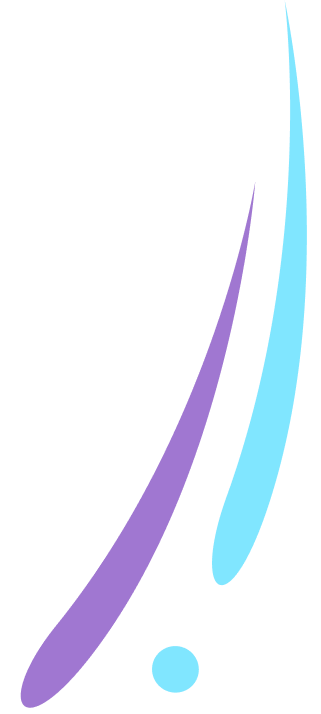

Learn more about the EYFS curriculum and how to support your learners at home

Author
Mhairi
Published
March 2025


Key takeaways
We all know that from the moment our little ones enter the world they’re constantly learning. Even from a young age, they’re already developing their maths skills through rhymes, games, and observing maths in the world around them!
The early years are the perfect time to develop foundational knowledge that helps your little ones excel in maths as they grow up. That’s why the Department of Education constructed the Early Years Foundation Stage (EYFS) maths curriculum!
This curriculum covers any learning our kiddos undertake from birth to age 5 (or the end of the reception school year). The guidelines are mandatory for any school-based or group settings that children might attend.
Let’s take a closer look at the EYFS maths curriculum! We’ve got everything you need to know about the learning goals and assessments, and how you can help your learner with their EYFS curriculum maths!
A core goal of the EYFS maths curriculum is to develop learners’ understanding of number. Over the first five years of their learning, they’ll learn to count confidently and work with numbers from 0 to 10.
The other main area of EYFS curriculum maths learning is patterns. This includes spotting patterns and relationships within numbers or quantities. Little ones will learn to use language like “more”, “less”, “bigger”, and “smaller”, and recognise odd and even numbers.
Teachers will use early learning goals (EGLs) to measure their little learners’ progress in the reception year. Their performance against these EGLs will help teachers construct their EYFS profile ahead of learners moving onto the Key Stage 1 maths curriculum.
The ELGs for the EYFS maths curriculum are split across two areas of maths; number and patterns.
When it comes to number, it’s expected that learners will:
By the end of the reception year and the EYFS maths curriculum, little ones should be able to:
Unlock unlimited maths questions
Put your skills to the test with fun exercises + maths games that are proven to boost ability!
Try DoodleMaths for free!
Select a year group
The reception baseline assessment (RBA) is a statutory assessment that students must complete within the first six weeks of their reception year. The RBA will test maths, literacy, and, communication and language skills.
In a one-to-one setting, learners are asked to complete simple tasks (e.g. counting) and a teacher will record their responses on a computer. The assessment is not strictly timed but should take around 20 minutes.
The results of the RBA are not used to measure individual performance. They’re used alongside the results from the end of KS2 SATs seven years later to measure school performance.
More information on the RBA is available from gov.uk, with answers to some FAQs here!
The EYFS profile is a statutory assessment of reception-aged children’s development. Teachers must finalise this profile by the end of June in the reception year and share it with the child’s Year 1 maths teacher.
The EYFS profile records if little learners have met the expected levels in 17 learning goals across the EYFS curriculum. Students are recorded as either “meeting” or “emerging” in two EYFS maths curriculum ELGs; number and pattern.
Results are submitted to local authorities who return the data to the government for reporting. Parents will also receive a summary of their child’s EYFS profile!
One of the best things about the EYFS maths curriculum is how easy it is to make learning fun for our little ones. Playful, fun learning is a brilliant way to encourage them to ‘have a go’ and not be afraid of making mistakes!
This helps tiny learners develop a positive attitude towards maths which is such a positive for them as they move on to KS1 and KS2 in their primary school years.
We’ve created a list of 12 maths games for reception learners that’ll give you some great ideas to get started!
Our DoodleLearning maths app is another super option for fun learning practice for EYFS learners age 4 and up. The app is aligned with the EYFS maths curriculum and tailors learning to each user meaning it’s perfect for boosting those maths skills!
Unlock unlimited maths questions
Put your skills to the test with fun exercises + maths games that are proven to boost ability!
Don’t forget our incredible DoodleLearning maths app is packed with fun maths games for reception learners! Everything is aligned with the EYFS maths curriculum, so you can be sure your kiddos are practising the skills that will help them in school.
Each learner will get a personalised programme of fun games and interactive activities that teach them the concepts they need to know. Adults can even keep an eye on their progress with a separate dashboard!


The early years are a period where our kiddos learn so much, especially in maths! The EYFS maths curriculum ensures that schools and other group-learning settings keep little ones on track to build the skills they’ll need across number and patterns.
Don’t forget that making learning fun is key in this stage, so be sure to use all the fun maths games, rhymes, and hands-on activities you can! Your kiddies will thank you for it later!

Parents, sign up for a DoodleMaths subscription and see your child become a maths wizard!

Book a chat with our team
If you’d like to use Doodle’s browser version, please visit this page on a desktop.
To log in to Doodle on this device, you can do so through our apps. You can find out how to download them here: